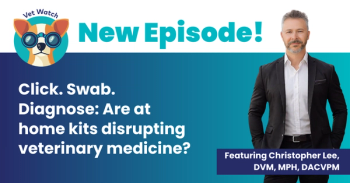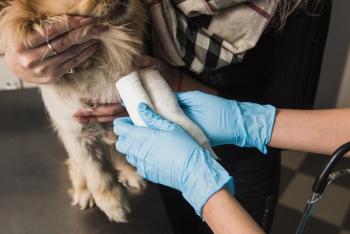
- June 2017
- Volume 1
- Issue 2
The Digital Path to Client Education and Compliance
Social media is a great tool to reach pet owners and ensure they follow recommendations.
Practice success relies on having a well-informed clientele. Marketing is most effective when pet owners see your staff as authorities on pet health. Plus, clients are more likely to follow your recommendations when they understand the benefits to their pet’s health.
The trouble is that you typically have face-to-face contact with your clients only a handful of times throughout the year. Between semi-annual exams and occasional diagnostic visits, you can’t be entirely sure which of your pet care tips your clients are following.
Or can you? Thankfully, digital marketing can help drive compliance when it’s done effectively and leveraged correctly.
RELATED:
- Engaging with Clients Through Technology
- Expand Your Practice Base With Client Endorsements
Go Beyond the Basics
You’ve probably already plastered your contact information on the basic online platforms with which your clients are likely to engage: your website, Facebook page and Google Plus account. Beyond that, you probably want your clients (and potential clients) to call or visit your practice to ensure the quality and consistency of your educational messaging.
Yet those online channels can do much more than provide your phone number in search results. Social media can complement your in-house efforts, maintain the consistency of your practice philosophy and reach pet owners 24/7.
Through these online channels, you can recommend specific products, provide examples of true emergencies and offer nail trim demonstrations. In short, you can make direct statements about what you consider high-quality pet care and what may be ineffective or dangerous practices.
This is where education and marketing intersect. Websites and social media channels are extremely popular and easily accessible, meaning they can help you reach a large and receptive audience.
If your online pet care content is clear, reliable and branded with your practice name and/or logo, your clinic becomes a trusted and shareable authority. Shared online material is the new word-of-mouth, and Facebook, Instagram and other social media platforms can help boost your chances of reaching the right newsfeeds.
A Spoonful of Sugar
Don’t forget to include some fun content online, such as practice photos, cute memes and fun videos. After all, educational content goes down better with a spoonful of sugar! Ultimately, every social media follower you gain can become an informed, empowered pet owner, and the pets you care for would thank you if they could.
Shannon Pecora earned her master’s degree in English from George Mason University while also working in a veterinary hospital. As a social media marketing analyst at Beyond Indigo, she writes and educates about pets.
Articles in this issue
over 8 years ago
Vetsource Settles Suit Against Nevada Pharmacy Boardover 8 years ago
Take It from Dale Carnegieover 8 years ago
Gain Social Leverage to Increase Your Client Baseover 8 years ago
From Mad to Glad: Appeasing Angry Clientsover 8 years ago
Three Confidence-Limiting Beliefsover 8 years ago
Fear Free: More Rewards Than I Imaginedover 8 years ago
Hot Topics in Human Resourcesover 8 years ago
Educating Clients About Pet Health Insuranceover 8 years ago
Exploring Workplace Bullyingover 8 years ago
5 Cost-Effective Strategies to Win New ClientsNewsletter
From exam room tips to practice management insights, get trusted veterinary news delivered straight to your inbox—subscribe to dvm360.






